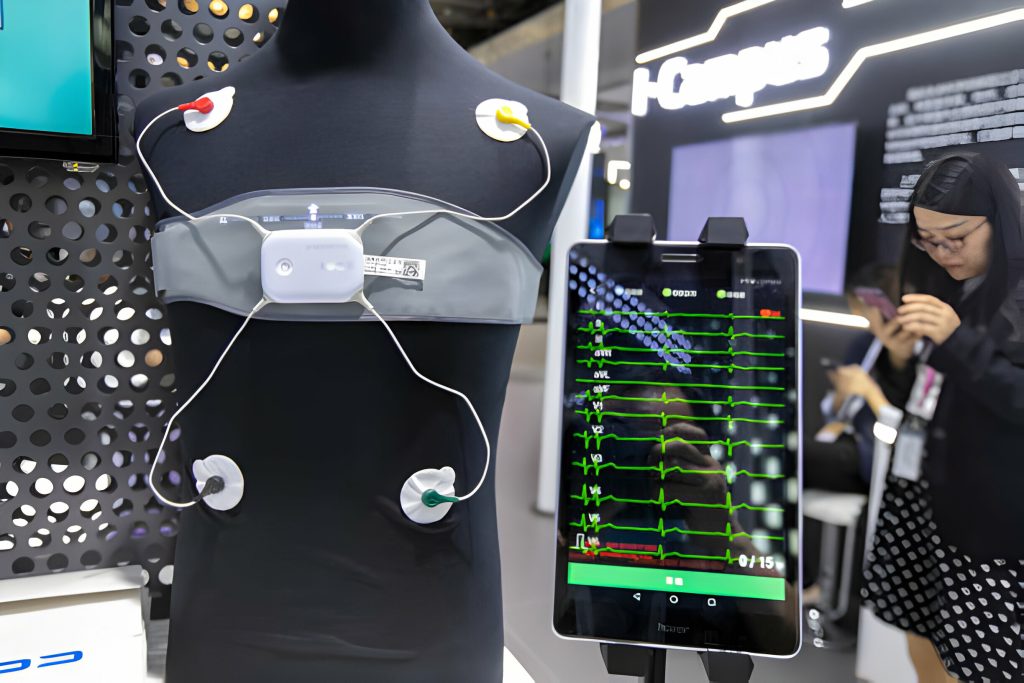Did you know that artificial intelligence (AI) has been making waves in the healthcare industry since the 1970s? It has revolutionized the way medical professionals diagnose diseases, provide treatment, and even manage patient data. With AI-powered applications like XSOLIS CORTEX, utilization review processes have been streamlined, freeing up more time for patient care. In this article, we’ll explore the early developments of AI in medicine and delve into its impact on various medical specialties. So, let’s dive in and discover when AI was first used in healthcare!
Early Developments in AI in Medicine
In the early developments of AI in medicine, you will learn about significant milestones such as the creation of MYCIN and the introduction of the first AI in Medicine workshop. Early AI models had their limitations, but a deep learning breakthrough in the early 2000s paved the way for advancements in AI in clinical practice. One area where AI has made a significant impact is diagnostic accuracy improvement. With the ability to analyze complex algorithms and self-learn, AI systems have revolutionized how diagnoses are made. By leveraging machine learning techniques, AI has improved not only the accuracy but also the efficiency of diagnosing medical conditions. This advancement has led to better patient outcomes and more streamlined workflows for healthcare professionals.
AI Applications in Diagnoses and Treatment
Explore how AI has revolutionized the field of medicine by enhancing diagnoses and treatment methods. Here are four ways AI is being applied in healthcare today:
- AI applications in radiology: AI algorithms can analyze medical images with incredible precision, aiding radiologists in detecting abnormalities like tumors or fractures more accurately and efficiently.
- AI in telemedicine: Telemedicine platforms powered by AI allow patients to receive remote consultations from healthcare professionals. AI can help triage patients, provide personalized recommendations, and even assist in remote surgery.
- AI in disease diagnosis: By analyzing vast amounts of patient data, including symptoms, lab results, and medical history, AI can identify patterns and make accurate diagnoses for various diseases.
- AI in electronic health records (EHR): Integrating AI into EHR systems improves documentation accuracy, streamlines workflows, and enhances decision-making by providing real-time insights based on patient data.
With these advancements, AI is transforming medicine by improving diagnostic accuracy, enabling remote care delivery, facilitating efficient primary care services, and optimizing the management of electronic health records.
AI Advancements in Healthcare Technology
AI-powered devices, such as the EchoGo Heart Failure tool, have been authorized by the FDA in 2022 for detecting heart failure. These advancements in AI technology have opened up a world of possibilities for healthcare. With AI in healthcare, there are ethical considerations that need to be addressed. The use of AI allows for personalized medicine, tailoring treatments specifically to each individual patient’s needs. This not only improves patient outcomes but also enhances the overall quality of healthcare. However, it is important to acknowledge that AI will have an impact on the healthcare workforce and may lead to changes in job roles. Despite these potential challenges, the future of AI in healthcare holds immense promise for improving patient care and revolutionizing the industry as a whole.
AI in Genetic Research and Disease Understanding
With advancements in genetic research and disease understanding, you can expect AI to play a crucial role in analyzing complex data and predicting disease outcomes. Here are four ways AI is revolutionizing the field of genetic research and disease understanding:
- Genetic Research Advancements: AI algorithms are being used to analyze vast amounts of genomic data, helping researchers identify patterns and potential disease markers more efficiently than ever before.
- Disease Prediction Models: AI models can integrate genetic, environmental, and lifestyle factors to develop personalized disease prediction models. This enables healthcare providers to identify individuals at high risk for certain diseases and take proactive measures for prevention or early intervention.
- AI in Precision Medicine: By analyzing patient-specific genetic information, AI can assist in tailoring treatment plans that are specific to an individual’s unique genetic makeup. This leads to more effective and targeted therapies.
- Drug Discovery Applications: AI algorithms can sift through large databases of chemical compounds to identify potential drug candidates for specific diseases. This accelerates the drug discovery process, potentially leading to faster development of new treatments.
AI’s Impact on Cardiac Care
AI has revolutionized cardiac care by improving diagnostic accuracy, aiding in the detection of heart failure, and utilizing population-wide data to understand cardiac arrest susceptibility. With AI technology, cardiovascular disease can be better managed and treated. AI algorithms analyze large amounts of patient data to identify early signs of heart failure and predict the risk of cardiac arrest. Additionally, AI assists in assessing cardiac risk by analyzing factors such as age, medical history, and lifestyle choices. In cardiac imaging analysis, AI algorithms can enhance the interpretation of scans and identify abnormalities with high precision. The following table highlights how AI is transforming different aspects of cardiac care:
| Application | Description |
|---|---|
| AI in cardiovascular disease | Improves diagnostic accuracy |
| AI in heart failure detection | Aids in identifying early signs |
| AI in cardiac arrest prediction | Predicts the risk of cardiac arrest |
| AI in cardiac risk assessment | Analyzes various factors for accurate risk assessment |
| AI in cardiac imaging analysis | Enhances interpretation and detects abnormalities |
Thanks to these advancements, healthcare professionals can provide more accurate diagnoses and personalized treatment plans for patients with cardiovascular conditions.
Introduction and Early History of AI in Medicine
In the early days of medicine, you might be surprised to learn that AI was first described in 1950. Here are some interesting facts about the early history of AI in medicine:
- Early models: The early models of AI in medicine had their limitations, as they were not able to fully replicate human intelligence and decision-making processes.
- Deep learning: However, in the early 2000s, deep learning emerged as a breakthrough technology in AI. It allowed computers to analyze complex algorithms and self-learn from large datasets.
- Clinical practice: Today, AI is being applied in various areas of clinical practice, such as radiology and pathology. It has revolutionized diagnostic accuracy by assisting healthcare professionals in interpreting medical images and making more accurate diagnoses.
- Diagnostic accuracy: With the help of deep learning algorithms, AI has significantly improved diagnostic accuracy in healthcare. It can quickly analyze vast amounts of patient data and provide valuable insights for better treatment decisions.
Overall, AI’s journey from its early models to the current state has paved the way for significant advancements in clinical practice and enhanced diagnostic accuracy in healthcare.
Advancements in AI in Medicine
You’ll be amazed to learn about the remarkable advancements that have been made in medicine through the use of AI. AI systems in clinical practice have significantly improved diagnostic accuracy and enhanced workflow efficiency. This technology has also made significant contributions to the field of gastroenterology, revolutionizing patient care and outcomes. AI applications in gastroenterology have allowed for more precise and accurate diagnoses, leading to better treatment plans for patients. Additionally, AI has played a crucial role in healthcare technology advancements by automating processes, analyzing complex algorithms, and self-learning. These advancements have not only improved patient care but also freed up valuable time for healthcare professionals to focus on providing personalized care. With the continuous development and integration of AI into healthcare, we can expect even greater improvements in diagnosis, treatment, and overall patient outcomes.
Application of AI in Gastroenterology
The application of AI in the field of gastroenterology has revolutionized patient care and outcomes. Here are four ways AI is making a significant impact in gastroenterology:
- AI applications in gastroenterology: AI algorithms are being used to analyze medical images, such as endoscopy videos, to detect abnormalities and assist in diagnosis.
- AI algorithms in endoscopy: By leveraging machine learning, AI algorithms can enhance the accuracy and efficiency of endoscopic procedures, improving detection rates for gastrointestinal diseases.
- AI-driven advancements in gastroenterology: With the help of AI, healthcare professionals can now predict disease progression and identify high-risk patients more effectively. This enables early intervention and personalized treatment plans.
- AI for gastrointestinal disease diagnosis: Through deep learning techniques, AI can aid in the diagnosis of various gastrointestinal conditions by analyzing patient data, symptoms, and medical histories.



